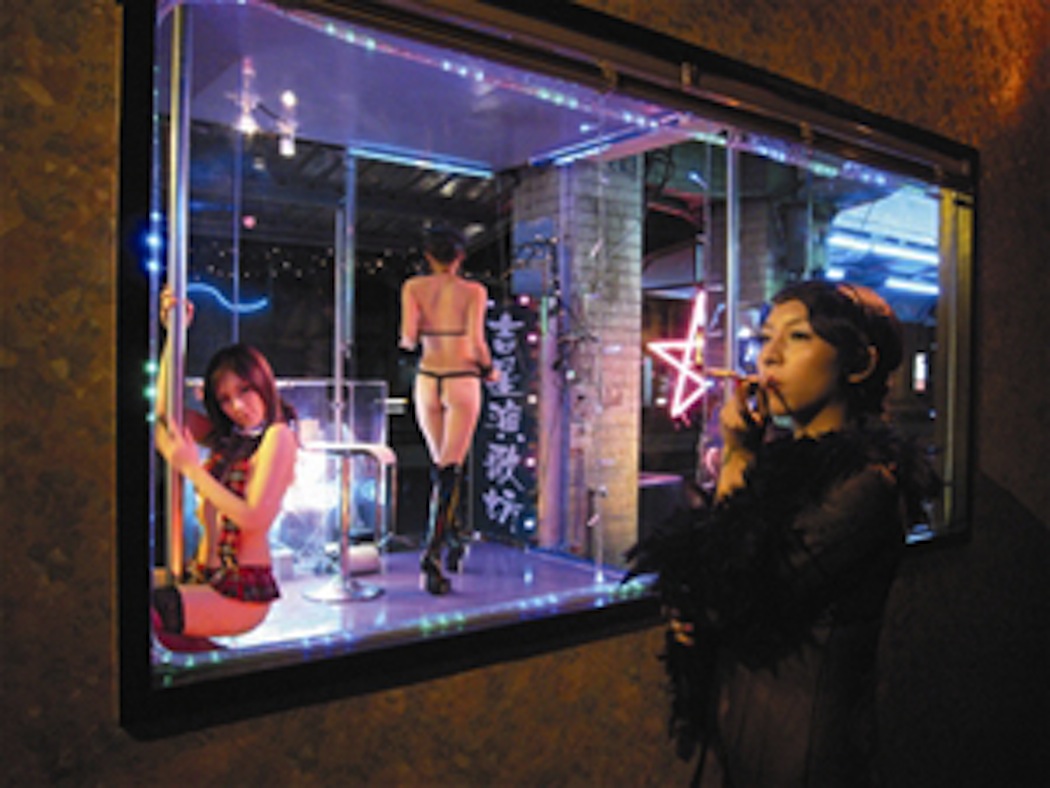HELP ME EROS (BANG BANG WO AI SHEN)
 Thursday, October 7, 2010 at 10:17PM
Thursday, October 7, 2010 at 10:17PM At first this strikes as madhouse, Taiwanese Fassbinder on steroids: lurid, hallucinatory colors; post-modernly over-composed, photographic frames; post-verbal characters overwhelmed by existential paralysis or sexual ennui/compulsion; alienation/suicidal impulses in response to the over-stimulating, ruthless modern world; gestures of (life-saving) connection thwarted by too-available communication technology (well, that might be more Taiwan than Fassbinder) and cheesy, emotional pop songs slathered over all the “action.” Yet for all its lucid depiction of urban dislocation, Help’s self-conscious beauty and even more self-conscious mood-to-mood narrative enveloped me from the first sequence (a live carp being butchered and served-while still repulsively opening and closing its drowning mouth-on a TV cooking show).
world; gestures of (life-saving) connection thwarted by too-available communication technology (well, that might be more Taiwan than Fassbinder) and cheesy, emotional pop songs slathered over all the “action.” Yet for all its lucid depiction of urban dislocation, Help’s self-conscious beauty and even more self-conscious mood-to-mood narrative enveloped me from the first sequence (a live carp being butchered and served-while still repulsively opening and closing its drowning mouth-on a TV cooking show).
I remained awe-struck and hypnotized through one tableau after another: a neglected, overweight wife bathing in a tub of live eels; her chef husband shooting pool with his boy-pal, both of them naked from the waist down; gorgeous scantily-clad girls dispensing betel nuts, cigarettes and hauteur to passing motorists; a couple tirelessly 69’ing in positions that would baffle a contortionist. There does seem to be a protagonist and he does seem to live out a narrative arc (loses all his money, cultivates whup-ass marijuana, conceives a romantic obsession for the (girl) suicide hotline-answerer, sells priceless designer furniture for a pittance to buy lottery tickets, makes the most beautiful of the betel nut girls fall for him, breaks her heart and somehow disappears between life and death) but the emotion does not derive from observing the protagonist’s life, nor from the Herculean effort required to figure it out.
Rather, the emotional power is rooted in Lee’s absolute conviction in his own methods. His fractured narrative is not willfully post-modern; he’s not referencing story-telling in a Godardian sense. I’m sure for Lee the plot is as apparent as Jack & Jill going up the damn hill. He creates one emotional landscape after another, most held within a single shot and utterly complete. These keep coming and coming; Help has more ideas than any one movie can contain. Lee’s a singular mad genius, so citing Fassbinder gives only a rough sense of what he’s doing (and I did not say: attempting to do), and cannot not capture the breadth of his ideas-about character, narrative, visual design, language, fashion, technology, music, culture, sexuality, drugs, desire and, inescapably, cinema.
 HHelp Me Eros
HHelp Me Eros 
